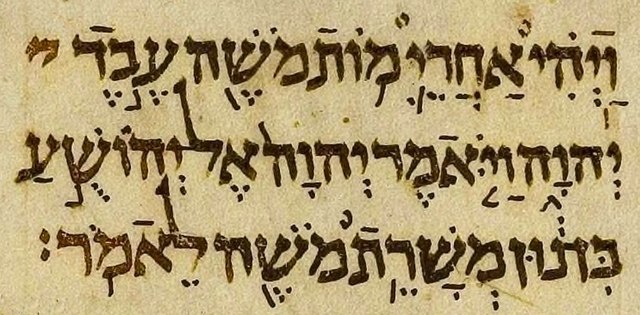Moses ben Maimon (1138–1204), commonly known as Maimonides and also referred to by the Hebrew acronym Rambam, was a Sephardic rabbi and philosopher who became one of the most prolific and influential Torah scholars of the Middle Ages. In his time, he was also a preeminent astronomer and physician, serving as the personal physician of Saladin. He was born and lived in Córdoba in al-Andalus within the Almoravid Empire on Passover eve 1138, until his family was expelled for refusing to convert to Islam. Later, he lived in Morocco and Egypt and worked as a rabbi, physician and philosopher.
Purported portrait of Maimonides from which all modern portraits are derived, Thesaurus Antiquitatum Sacrarum c. 1744
Maimonides' house in Fez, Morocco, according to local tradition. It is now occupied by the Dar al-Magana.
Monument in Córdoba
Bas relief of Maimonides in the United States House of Representatives
Hebrew is a Northwest Semitic language within the Afroasiatic language family. A regional dialect of the Canaanite languages, it was natively spoken by the Israelites and remained in regular use as a first language until after 200 CE and as the liturgical language of Judaism and Samaritanism. The language was revived as a spoken language in the 19th century, and is the only successful large-scale example of linguistic revival. It is the only Canaanite language, as well as one of only two Northwest Semitic languages, with the other being Aramaic, still spoken today.
Portion of the Isaiah Scroll, a second-century BCE manuscript of the Biblical Book of Isaiah and one of the best-preserved of the Dead Sea Scrolls.
The word IVRIT ("Hebrew") written in modern Hebrew language (top) and in Paleo-Hebrew alphabet (bottom)
A silver matchbox holder with inscription in Hebrew
Aleppo Codex: 10th century Hebrew Bible with Masoretic pointing (Joshua 1:1).








